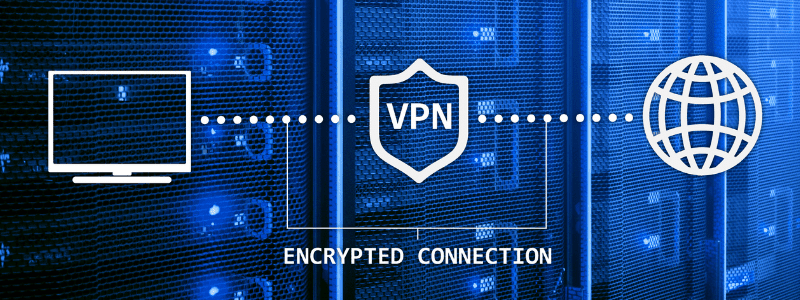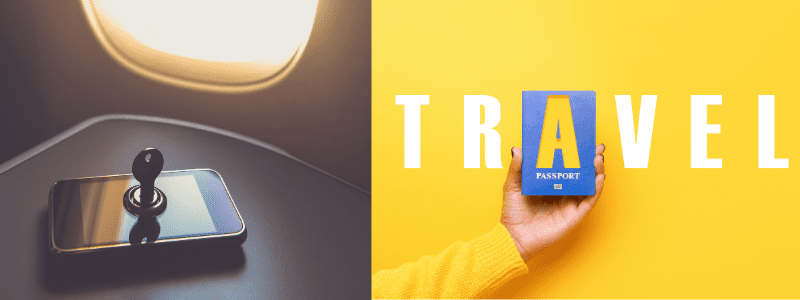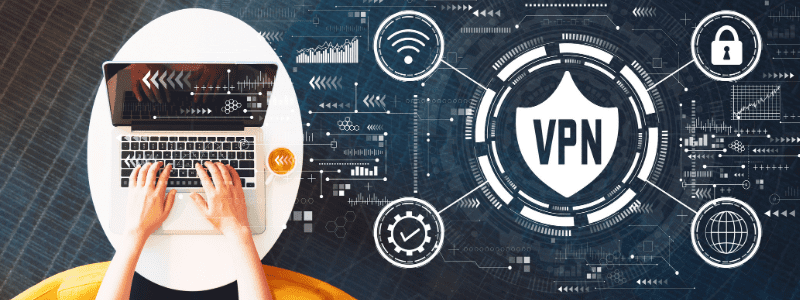Why You Should Never Travel Without The Enhanced Security Of A Strong VPN
A VPN or virtual private network is one of the most important services you can use to protect yourself while traveling. You lock up your suitcase and stash your cash in your sock or even buy insurance, but many travelers fail to protect the biggest asset they have – their digital existence.
All your data is up for grabs while you’re traveling and using your email or browsing the internet in the airport or on the hotel’s Wi-Fi. You’re checking your bank account, booking additional travel arrangements, keeping updated on your social media accounts, all while using unsecured internet providers that are shared by countless strangers.
In short, you need a strong and reliable VPN whenever you’re traveling. I use a VPN even at my local coffee shop, after all, I don’t know what everyone else is doing on their laptops around me.
For all I know, a few of them could be using our shared Wi-Fi connection to get into my personal data.

What Is A VPN?
A VPN or virtual private network acts as a secure middleman by connecting you to whatever it is you’re browsing through a private and secured server that is encrypted. By connecting firs to a VPN and then browsing the internet or accessing your bank account online, you’re guarding your online activity from being intercepting.
Beyond the most important features of a good VPN service, you also have the convenience of access it can afford you. For example, if you’re on a work assignment in Bulgaria for a month and don’t want to miss out on your favorite Netflix shows, you’ll quickly discover that some of your programs aren’t available in the country. The streaming giant doesn’t have worldwide streaming rights on all shows, so the selection varies widely based on your geographic location (IP address).
This annoyance is easily solved with your VPN. Simple change your VPN location from Sophia, Bulgaria to your home city and magically Netflix thinks you’re connecting to their service from your home like usual. You get to watch all your shows by effortlessly bypassing geographic content restrictions.

The Very Real Risks Of Not Using A VPN
To understand the true value of a VPN service, you need to know the risks that are waiting for you out there in the world.
Let’s say you log into a free public Wi-Fi, the same one everyone around you is using. The moment you log in, anyone on that network can theoretically access your device by piggybacking off the shared connection.
Cybercriminals will often create duplicate networks in public or shared areas including hotels, airports, and cafés. This is known as Rogue Access Points or Evil Twins and is easy and inexpensive to set up, requiring only some cheap software and a laptop. The hotel’s Wi-Fi networks is RamadaBeijing23 according to the sign behind the lobby counter you glanced at quickly. You click to see available networks and choose the first one on the list, RamadaBeijng23. Most of us wouldn’t notice the misspelling in the word Beijing. We log into the duplicate network and immediately hand over full access to the scammers who now can go through our entire computer or smartphone remotely and take anything they want – password, usernames, credit card numbers, email contacts, intellectual properly, documents, banking information, etc.
A study by security firm Kaspersky found that over one in four Wi-Fi hotspots pose a significant risk to user’s data.
By not using a secure VPN, you’re putting yourself and your data at risk. Travelers are especially vulnerable as they need internet access to stay connected to family, friend and work and often take for granted the security they had at home. Any network can be hacked and abused, no matter how legitimate or safe it may seem.
A VPN will encrypt and secure your data while traveling. It will prevent criminals and rouge software or malicious coding left by the previous hotel room occupant from accessing your personal information.

Choosing a VPN service to use while traveling must be done before you leave your trip. You’ll want to look for the following important features:
Doesn’t Keep Logs
The best VPNs don’t record and store any of your information while you’re accessing their service. Look for a virtual private network that specifically states, “no logs”. Without logs there can be no data leaks of your browsing habits or web services you use. Government agencies and advertisers are unable to collect any information from you as the provider does not collect any.
Flexibility of Multiple Devices
You want to make sure your VPN has well-reviewed apps for all major operating systems and devices including iPhone and Android. Choose a VPN plan with laptop and smartphone access.
IP Address Selection
While not a mandatory feature to keep yourself protected while traveling, the ability to select different IP addresses in multiple locations can be very helpful, particularly to ensure continued access to geographically locked content.
Global Service
Not all VPNs provide a network with worldwide support. Make sure the VPN offers full support of all features in your destination. Some VPNs only provide limited features or slower speeds in certain countries.
Speed
Just like any telecom company or service provider, VPNs offer different plans at different speeds. The farther you are from the IP address, the slower your connection will be. This is because your data will have a greater distance to travel. Choose a VPN that offers the best speeds for the price, but make sure you find out what their local speeds will be once you arrive at your destination. The speeds the VPN offers in Chicago is probably not the same speeds they provide in Manila.

Additional Travel Tips To Protect Your Devices & Data
Avoid Public Charging Stations
That cable that charges your phone is also a data transmission cable. Connecting your smartphone or laptop to the charging port can open your device up to a compromised port. To prevent this risk, bring your own power-only charging cable to use instead.
Know Your Own Data
Everything you have stored on your devices can be stolen while you’re traveling. It’s a good idea to know everything you’re potentially making available to thieves and other cyber criminals. Sit down with your devices before you leave and review your documents, photos and apps. Backup and store anything you don’t need while away, so you can remove it from the device.
Remember the golden rule: Less data means less risk.
Don’t Log Into Anything Before Double-Checking
Before you log into that Wi-Fi network, double-check the name and make sure it matches exactly. If there’s an extra space or a little misspelling, you’re looking at a rogue duplicated network that will steal your data the instant you connect.
Change Your Passwords Before & After
Right before you get on the plane, change your passwords to any vital accounts such as banking. Once you return from your travels, change your passwords again just in case a cybercriminal was able to steal them.
The next time you’re packing for that important business trip or much-needed vacation, make sure you sign up for a VPN service and bring it with you. Protecting your data and devices is just as important as protecting your tangible items.



We tested Smush Pro CDN, WPMU DEV and Bunny.net and switched to Bunny CDN with no regrets. Faster, flexible, no WordPress plugin required and cheaper. Let me explain. Keep Learning >

Most site owners falsely believe they’re immune to serious web security incidents because they don’t have a massive website with millions of users. Not true. That false sense of security can cost your business heavily. Tighten up web security without spending thousands with these tactical improvements. Keep Learning >



